 Language is one of the few secrets of immortality. There are hundreds of people, whether one knows it or not, that the average speaker has preserved from oblivion. They live on in words. A word that originates from a person’s name is called an eponym. Some of the preserved namesakes were less than savory figures. Here are 10 of the weirder lives behind the eponyms. 10
Language is one of the few secrets of immortality. There are hundreds of people, whether one knows it or not, that the average speaker has preserved from oblivion. They live on in words. A word that originates from a person’s name is called an eponym. Some of the preserved namesakes were less than savory figures. Here are 10 of the weirder lives behind the eponyms. 10Candido Jaccuzzi

The Ordinary Word:
Jacuzzi. Come on and enjoy the simmering jets of a jacuzzi. Soak in the warm water and let those problems float away in the height of luxury. Jacuzzi has become shorthand for any model of hot tub. It is an appropriate namesake for a family that was constantly in hot water.
The Unordinary Life:
Candido Jacuzzi did not have time to relax. Italy at the dawn of World War I was a bad place to be, especially for a pacifist. His father, Giovanni, ordered the family to flee to America. The war proved to be a great benefit for the peaceful family. The oldest son, Rachele, started designing airplanes to help with the war effort like the Jacuzzi J-7. In a disastrous test flight of his brothers’ planes, Giocondo Jacuzzi and three others crashed near Yosemite. The dreams of an aeronautic empire died with everyone on board that day.
The Jacuzzi family was economically ruined. In 1925, Rachele started inventing a new water pump. However, Rachele never got a chance to showcase the pump’s true potential. In 1937, Rachele died from a heart attack. His younger brother Candido eventually took control of the business.
In 1943, Candido’s infant son, Ken, contracted a terrible case of strep throat. The disease mutated into a full body case of juvenile rheumatoid arthritis. To reduce the swelling, Candido implement a regime of “hydrotherapy.” Bathing in warm water minimized his son’s condition. Persevering through these disastrous events, the jacuzzi was born. [1]
9James Thomas Brudenell
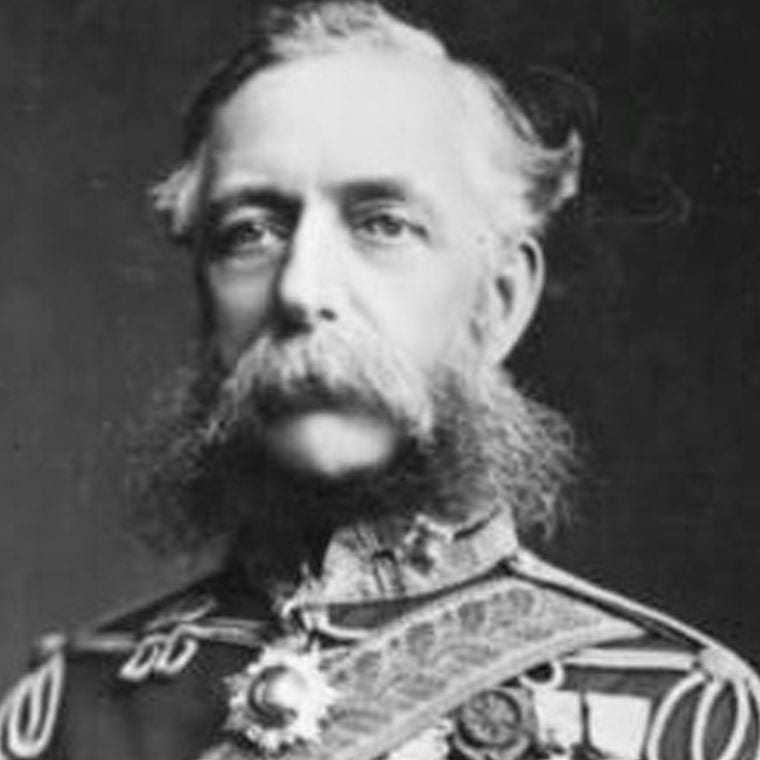
The Ordinary Word:
Cardigan. The buttoning sweater sported by Fred Rogers is one of the coziest garments o the market. Bundled up in a cardigan with a cup of hot cocoa, one is more likely to have visions of sugar plum than dozens of senseless deaths in battle.
The Unordinary Life:
In his most famous poem, “The Charge of the Light Brigade,” Sir Alfred Lord Tennyson immortalized one of the biggest military fiascos of the Crimean war. Describing the cavalry soldiers’ futile purpose with the iconic stanza, Tennyson wrote that “Theirs not to make reply, Theirs not to reason why, Theirs but to do and die.” Nowhere does Tennyson mention how fashionable the massacre was.
The man chiefly responsible for the devastating failure was James Brudenell, 7th Earl of Cardigan. Brudenell was supposed to tell his troops to assault a retreating battery. Acting on poor communication, he instructed his forces to instead attack a fully protected battery. The frontal assault was calamitous. 118 of the 666 soldiers died from Brudenell’s mistake. During the battle, he could be seen sporting a precursor to the buttoned sweater vest that would eventually bear his name.[2]
8Charles Richter

The Ordinary Phrase:
The Richter Scale. Seismologists no longer rely on the Richter Scale like they had in the past. It still is an omnipresent feature of any news coverage of an earthquake. The Richter Scale measures the magnitude and quantifies the extent of the damage felt during an earthquake. Charles Richter lived a shaky life of his own.
The Unordinary Life:
Charles Richter was a man of science and science fiction. When not measuring tectonic faults, he was almost always watching Star Trek. An avid Trekkie, Richter chronicled detailed synopsis of every adventure onboard the Starship Enterprise. It is not inherently surprising that a geologist was interested in other planets.
Richter’s other hobby was much more surprising. Along with his wife, Lillian, Richter was a vocal advocate of nudism. Together they hiked around San Francisco wearing not much more than their boots. This open spirit translated into sexual experimentation. Outside of the multiple women he cheated on his wife with, evidence suggests he may have had an incestuous relationship with his sister. His wife was already having bisexual affairs of her own.[3]
7Alec Hoag
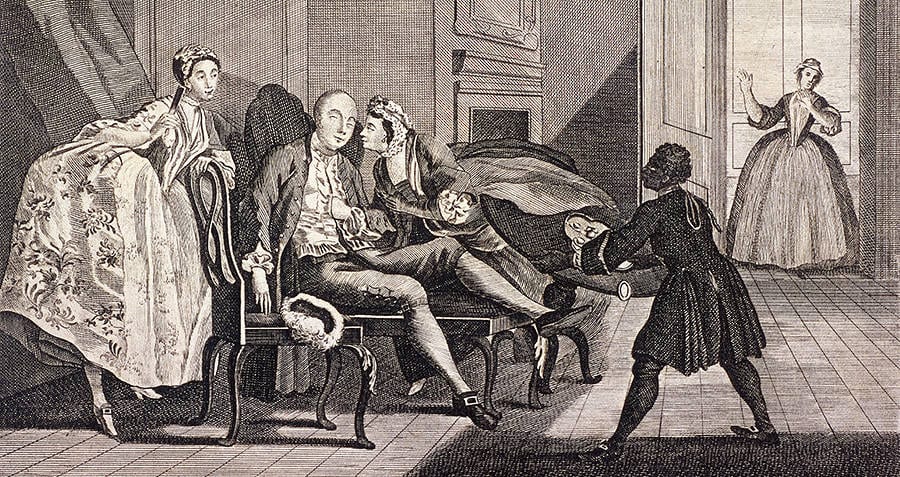
The Ordinary Phrase:
Smart Aleck. Smart Alecks are too clever for their own good without being that clever to begin with. The insult is dismissively applied to those who think they know everything. The real Alec probably wished he was a little bit smarter.
The Unordinary Life:
Alec Hoag was a prominent criminal in 19th century New York. Hoag’s wife, Melinda, disguised herself as a prostitute. While the johns were obviously distracted, Alec pilfered through their pockets. Because Melinda could be easily identified, to keep the business flowing, the police received a portion of the profits from the stolen goods.
Hoag improved upon his scheme with a move called “the panel game.” In the middle of a tryst, Alec again took the valuables out of the discarded clothes of the unsuspecting mark. He then barged in the room accusing the man of sleeping with his wife. The adulterer would pick up their clothes and escape without thinking of their missing items.
Eventually, Hoag made enough that he thought he no longer need law enforcement’s help. They disagreed. Alec and Melinda were quickly arrested. Mocking him, the police ironically referred to him as “smart Alec.” The phrase entered the lexicon shortly after.[4]
6Joseph Pilates
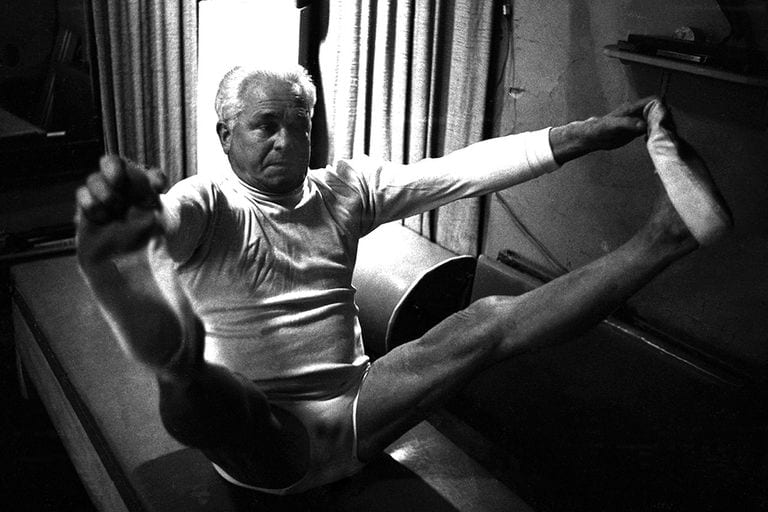
The Ordinary Word:
Pilates. Now the perfect exercise for LuLu Lemon clad housewives to burn off brunch mimosa calories. Instagram influencers preferred workout was initially not intended for weight loss, but to stay alive in internment camps. The cultural phenomenon born out of torture gives a whole darker interpretation to “no pain, no gain.”
The Unordinary Life:
At the dawn of World War I, the British government was suspicious of young german residents. To control the immigrant population, the British arrested many of them and placed them in camps on the Isle of Man. One of these camps, Knockaloe, interned 23,000 prisoners. Conditions were grim. Many inmates reported “barbed-wire disease,” a mental weariness similar to depression.
Joseph Pilates thought he had the cure for his fellow inmates’ blues. A vigorous boxer before the war, Pilates believed that exercise could strengthen the German’s resolve. Reconfiguring bedframes, he crafted a rudimentary workout machine. The contraption stretched and built muscles even while lying in bed. After the war, the equipment became the Pilates Cadillac. His product worked. None of the prisoners who used Pilates’ equipment died during the influenza outbreak of 1918. After a successful tour in America, Pilates became a guru for health nuts around the world.[5]
5Franz Mesmer

The Ordinary Phrase:
Mesmerize. The bewitching enchantment one gets from any of life’s great pleasures like a lover’s embrace, a technicolor sunset, or a Taco Bell Crunchwrap, mesmerize now means any hypnotic feeling. The term initially referred to the pseudo medical con of one doctor.
The Unordinary Life:
In 1778, King Louis XVI had a problem. His royal court was filled with aristocrats transduced by the bizarre notion of “animal magnetism,” an idea that all bodies are imbued with an inner force. If internal fluids threw off the force, the patient would get sick. With the correct placement of rods, the fluids were realigned. The only doctor who could properly realign the fluids was Franz Mesmer.
Mesmer was simply ripping off the delusional and wealthy. King Louis hired a real man of science, celebrated polymath Benjamin Franklin, to end the scam. In one trial, Franklin led a 12-year-old boy to four trees allegedly magnetized by Mesmer’s rods. The boy put his hand on each trunk and reported if he felt anything. By the fourth tree, he was overcome by the plant’s energy. Franklin then revealed that none of the trees were magnetized. Animal magnetism was all in their heads. When Franklin published their findings, Mesmer’s empire was over.[6]
4Ernesto Miranda
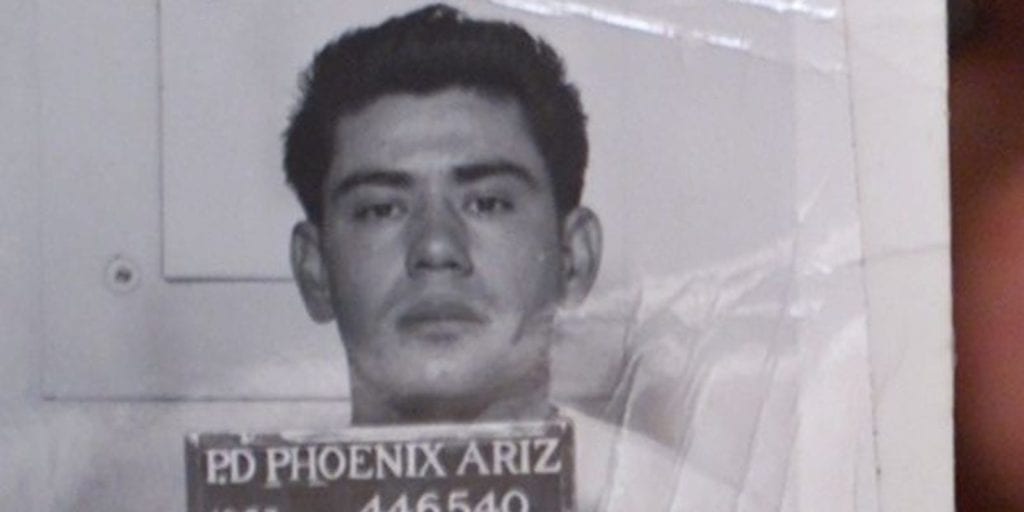
The Ordinary Phrase:
The Miranda Warning. Flip on any television channel, and one is bound to eventually hear a cop arresting a perp while reading them their Miranda Rights. The most famous line is the opening few words, “You have the right to remain silent.” Other protections include “the right to an attorney” and the guarantee that “an attorney will be provided for you.”
The Unordinary Life:
On March 13, 1963, Ernesto Miranda stole $8. Being the kind of person that steals $8, Miranda could not afford an attorney. For several hours, Miranda sat alone as police questioned him. Under the stress, Miranda confessed to the theft and an unrelated kidnapping and rape of an 18-year-old mentally challenged woman. Based upon his confession, Miranda was sentenced to 20 years in jail. Arguing that Miranda’s insufficient knowledge of the law coupled with the coercive nature of the interrogation invalidated the confession, the Supreme Court dismissed the conviction.
Ernesto Miranda was retried. Evidence alone proved his involvement in the rape. He served eleven years in prison. In 1976, Miranda was stabbed in a bar fight. He died at 34. After that, Miranda remained silent forever. In an ironic twist, the suspected killer invoked his Miranda rights while in custody. Never charged with the murder, the suspect fled to Mexico.[7]
3Melvil Dewey

The Ordinary Phrase:
The Dewey Decimal System. Dividing by subject matter, The Dewey Decimal system helps libraries arrange their collection for easy access. It is a system using math to organize books. It is not a very interesting phrase. The man it is named after was interesting, but for much worse reasons.
The Unordinary Life:
Melvil Dewey was a serial sexual assaulter. Unlike other librarians, Dewey hired women to work in his libraries. He created a toxic environment by openly groping and squeezing his two female assistants in front of their coworkers. In 1905, four women came forward with stories of harassment. The details of the allegations are unclear, but they resulted in his suspension from the American Library Association, an organization he helped form.
In subsequent years, multiple women came forward with additional tales of abuse. Testimonials collected by Tessa Kelso, a prominent Los Angeles librarian, revealed that not even Dewey’s own daughter-in-law was off limits. She had to move to stop his unwanted advances. In order to quit celebrating a man who caused so much harm, libraries have begun to strip his names from awards and his celebrated system. It’s time to close the book on Dewey.[8]
2Hans Asperger
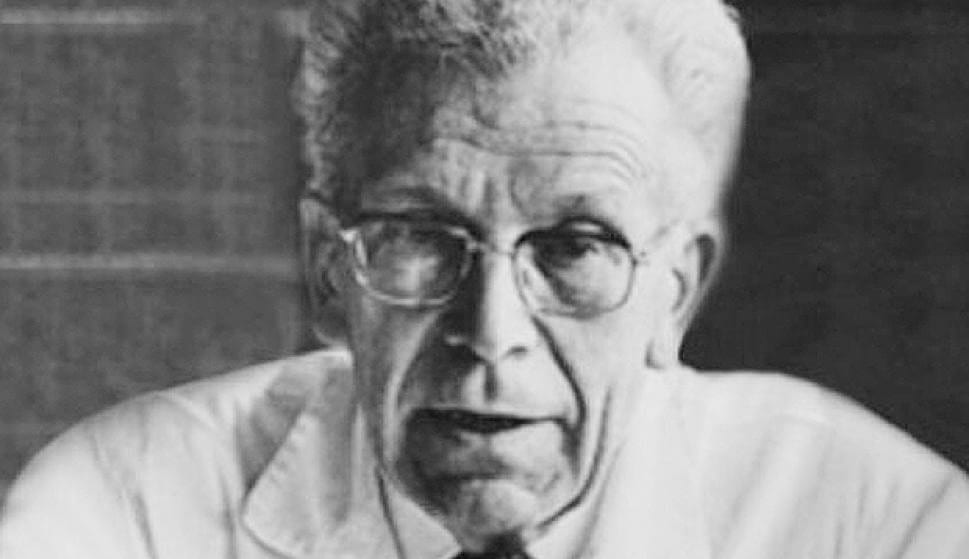
The Ordinary Word:
Asperger’s syndrome. Referring to high-functioning members of the autistic spectrum, people with Asperger’s syndrome generally have developmental issues with social interaction. For someone synonymous with a mental disability found in children, Hans Asperger did a lot of damage to children with mental disabilities.
The Unordinary Life:
Working as pediatrician in Vienna, Austria in the 1930’s and 40’s, Asperger’s was swept up in the rise of Nazism. Though never actually a member of the Nazi party, Asperger trafficked in the same antisemitism associated with the regime. He supported eugenics and racial sterilization. He scolded his Jewish patients, because he believed they were racially impure.
His relationship with the Nazism was not purely ideological. For at least two times, he coordinated with the party to send children with disabilities to euthanasia centers. In 1941, Asperger recommended 3-year-old Herta Schreiber and 5-year-old Elisabeth Schreiber to the notorious Am Spiegelgrund compound for something he referred to as, “permanent placement.” Over 800 children were executed during Spiegelgrund’s existence. Herta and Elisabeth Schreiber were among those casualties. On a separate occassion, Asperger sat on a committee that authorized an additional 35 children be sent to Spiegelgrund due to being “uneducable.” This euphemism obfuscates the obvious fact that they would not return from these camps.[9]
1Henry Heimlich
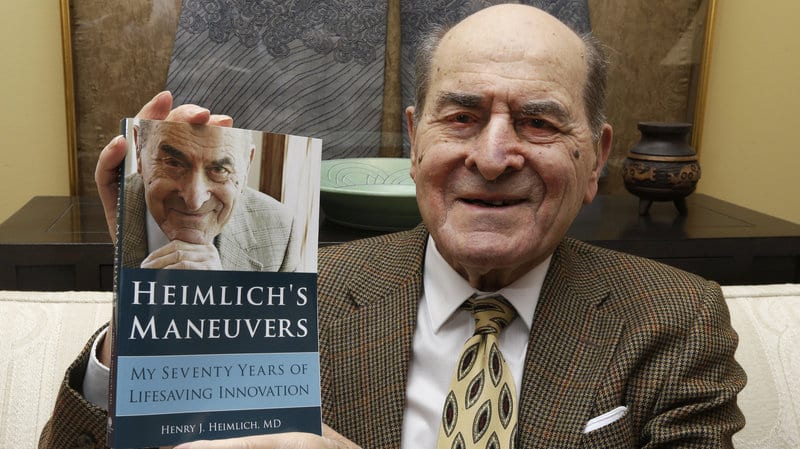
The Ordinary Phrase:
The Heimlich Maneuver. Henry Heimlich is one of the few people to become famous for blocked airways. His namesake technique of thrusting upward on the stomach to dislodge objects obstructing breathing is a fundamental practice of modern first aid. However, Heimlich was not always in the business of saving lives.
The Unordinary Life:
Using the popularity, he received following his breakthrough technique, Heimlich started scamming members of the Hollywood elite. Stars like Jack Nicholson, Ron Howard, Bob Hope, Ted Danson, and Amy Irving all donated to his foundation. Their money bankrolled Heimlich’s controversial practice of injecting AIDS victims with malaria. His thoroughly unscientific justification was that the fever from malaria could break HIV’s effects. Outside of peer medical supervision, Heimlich conducted trials in Mexico, China, and Ethiopia. The results have not been published.
Recently, the Heimlich maneuver’s own track record as a lifesaving tool has been called into question. For years, Heimlich petitioned the American Red Cross to promote his technique over CPR for drowning victims. The delayed widespread acceptance of CPR over Heimlich’s ineffective maneuver likely contributed to an unknowable amount of deaths. Henry’s estranged son, Peter, has openly called his father a fraud who fabricates the successful rate of the maneuver’s use. The American Red Cross no longer advocates for the maneuver as a first response. Instead, they support giving choking victims five firm slaps on the back.[10]

0 تعليقات